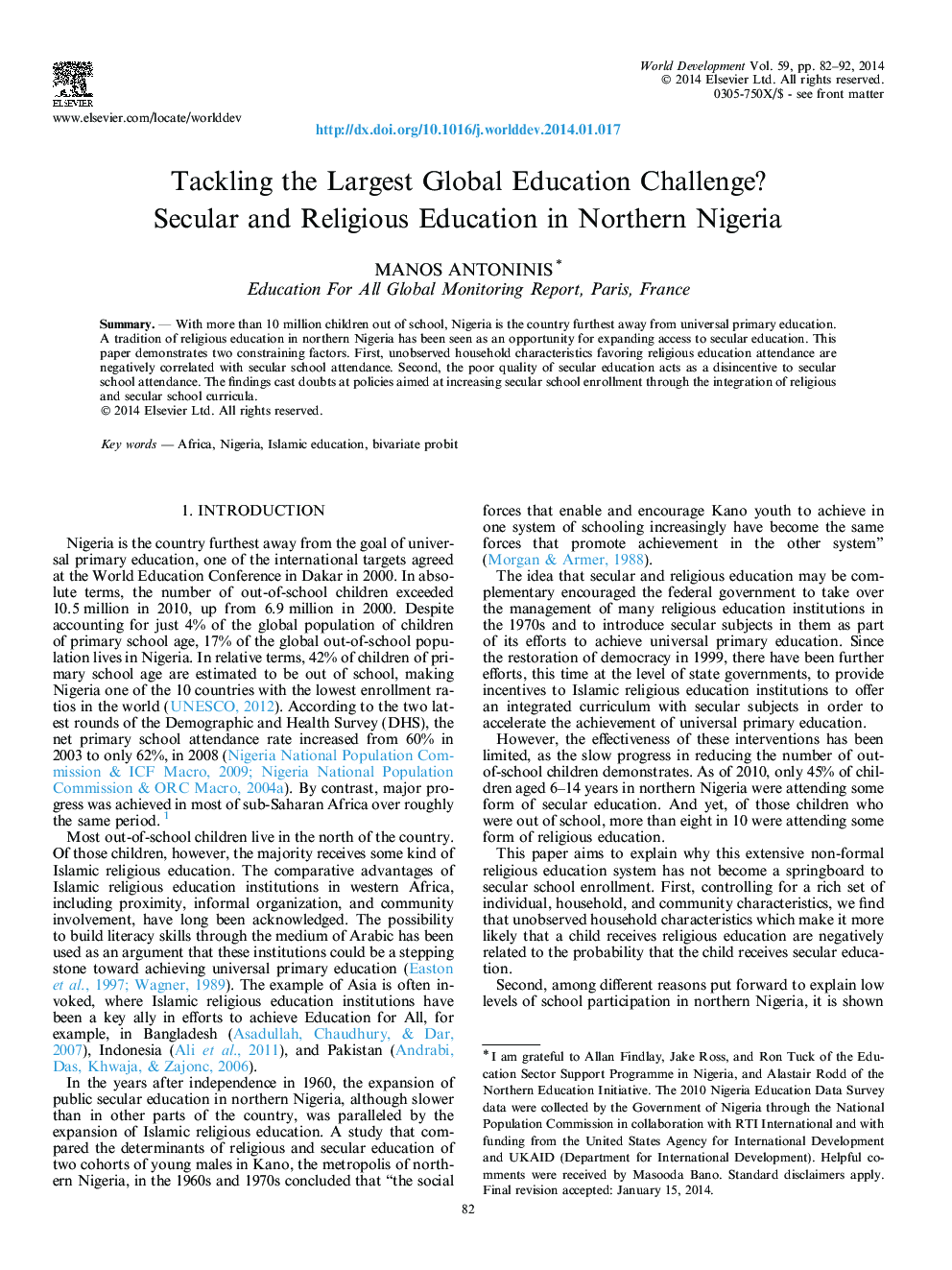| Article ID | Journal | Published Year | Pages | File Type |
|---|---|---|---|---|
| 7395181 | World Development | 2014 | 11 Pages |
Abstract
With more than 10Â million children out of school, Nigeria is the country furthest away from universal primary education. A tradition of religious education in northern Nigeria has been seen as an opportunity for expanding access to secular education. This paper demonstrates two constraining factors. First, unobserved household characteristics favoring religious education attendance are negatively correlated with secular school attendance. Second, the poor quality of secular education acts as a disincentive to secular school attendance. The findings cast doubts at policies aimed at increasing secular school enrollment through the integration of religious and secular school curricula.
Related Topics
Social Sciences and Humanities
Economics, Econometrics and Finance
Economics and Econometrics
Authors
Manos Antoninis,
